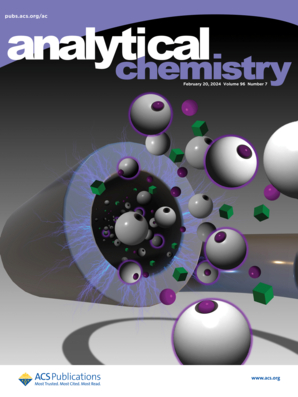Microseparation of Lipophilic and Hydrophilic Metabolites for Single Oocyte Mass Spectrometry Analysis
IF 6.7
1区 化学
Q1 CHEMISTRY, ANALYTICAL
引用次数: 0
Abstract
Single-cell metabolic analysis has not yet achieved the coverage of bulk analysis due to the diversity of cellular metabolites and the ionization competition among species. Direct ionization methods without separation lead to the masking of low-intensity species. By designing a capillary column emitter and introducing reverse-phase chromatography principles, we achieved the microseparation of lipophilic and hydrophilic metabolites and lowered the limit of detection of hydrophilic metabolites to the level of a single oocyte. We identified 517 metabolite species in a single oocyte, achieving coverage and reproducibility comparable to those of bulk analysis. By comparing oocytes at different maturation stages, 76 metabolic features were identified with significant differences between the germinal vesicle and meiosis II stages. Metabolite level changes suggested the roles of lipid metabolism remodeling, increased amino acid synthesis, and a shift from pyrimidine metabolism to purine metabolism in the process of oocyte maturation. This microseparation mass spectrometry analysis is expected to promote single-cell metabolomics.

求助全文
约1分钟内获得全文
求助全文
来源期刊

Analytical Chemistry
化学-分析化学
CiteScore
12.10
自引率
12.20%
发文量
1949
审稿时长
1.4 months
期刊介绍:
Analytical Chemistry, a peer-reviewed research journal, focuses on disseminating new and original knowledge across all branches of analytical chemistry. Fundamental articles may explore general principles of chemical measurement science and need not directly address existing or potential analytical methodology. They can be entirely theoretical or report experimental results. Contributions may cover various phases of analytical operations, including sampling, bioanalysis, electrochemistry, mass spectrometry, microscale and nanoscale systems, environmental analysis, separations, spectroscopy, chemical reactions and selectivity, instrumentation, imaging, surface analysis, and data processing. Papers discussing known analytical methods should present a significant, original application of the method, a notable improvement, or results on an important analyte.
 求助内容:
求助内容: 应助结果提醒方式:
应助结果提醒方式:


